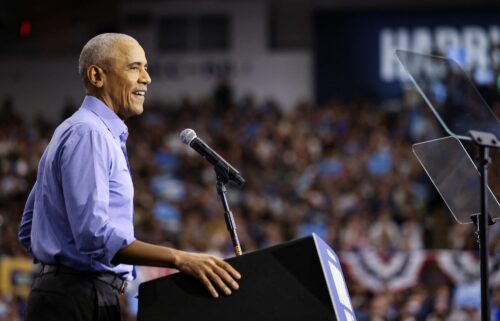Following today’s impeachment vote? Here’s what else is happening.

President Donald Trump’s former campaign chairman avoided a criminal indictment and US negotiations with a key foreign ally broke down Wednesday during a busy news day even without the House’s historic impeachment vote.
Here’s what’s happening beyond the House floor:
New York judge dismisses state indictment against Paul Manafort
A New York state judge dismissed a 16-count indictment against Trump’s former campaign chairman Paul Manafort on double jeopardy grounds.
“The law of double jeopardy in New York state … provides very narrow exceptions for prosecution,” Justice Maxwell Wiley said in court, citing the principle that an individual can’t be tried twice for the same conduct. “The indictment is dismissed.”
Manafort is currently serving a seven-and-a-half-year federal sentence for financial crimes that stemmed from special counsel Robert Mueller’s investigation. He had pleaded not guilty to the New York charges, which included residential mortgage fraud and falsifying business records.
Manafort was admitted to the hospital last week after suffering a heart ailment in prison. His lawyer said Manafort was in stable condition.
Justice Department watchdog testifies before the Senate Homeland Security Committee
The Justice Department’s inspector general said the FBI should have considered whether to end surveillance of Trump 2016 campaign aide Carter Page far earlier than it did, after learning that allegations of collusion against him might not be credible.
Michael Horowitz told the Senate Homeland Security Committee that FBI investigators should have thought about scaling back the wiretaps and surveillance of Page in January 2017. Instead, the government surveillance continued until September 2017.
“If you’re getting information that isn’t advancing, and in fact potentially undercutting, or simply undercutting your primary theme or theory as was happening here … you’d look at the Carter Page file and say, should I keep going on this?” Horowitz told the committee, explaining that the FBI wasn’t finding much to corroborate allegations that Page was working with Russia.
But Horowitz declined to say that the FBI should have shut down the entire Russia investigation, after facing questions from Homeland Security Chairman Ron Johnson. Horowitz also said his team had not found any evidence that Trump Tower had been under government surveillance — a conspiracy theory that Trump invented weeks after taking office in 2017.
Horowitz’s report on the origins of the FBI’s Russia probe, which was released earlier this month, found that the FBI had properly opened its investigation into Russian election interference but that there were major errors in how the agency had conducted the probe.
US and South Korea fail to reach cost-sharing agreement for US troops
The United States and South Korea have failed after two days of negotiations to agree on how to divide the cost for US troops stationed in South Korea, according to South Korean and American officials.
The failure to reach agreement comes amid reports that Trump has been demanding that South Korea pay roughly 400% more than Seoul is currently paying to house US troops. The President’s demand comes amid reports that North Korea may soon conduct a major provocation in the face of stalled nuclear talks with Washington.
The current cost-sharing agreement between Washington and Seoul is due to expire at the end of 2019, but the South Korean Ministry of Foreign Affairs and US State Department said a next round of talks has been scheduled for January.
Appeals court delivers blow to Obamacare
A federal appeals court found the Affordable Care Act’s individual mandate unconstitutional, but did not invalidate the entire law, which remains in effect. The decision by three judges on the 5th US Circuit Court of Appeals likely pushes any Supreme Court action on Obamacare until after the 2020 election.
In the case brought by Texas and joined by the Trump administration, which argued the entire law should be thrown out, the panel has told a lower court that it must consider whether the individual mandate can be separated from the rest of the law.
The court acknowledged that when the lower court reviews its opinion it might once again hold that the entire law must fall.
But the appeals court ruling stated, “It is no small thing for unelected, life-tenured judges to declare duly enacted legislation passed by the elected representatives of the American people unconstitutional.”
Trump administration proposes allowing imports of certain drugs from Canada
The Trump administration took another step toward allowing the importation of certain drugs from Canada and other countries.
Building on an effort first announced in July, officials unveiled a two-part proposal that would let prescription medications from other countries make their way to the US for the first time. The idea runs counter to long-held Republican beliefs, but has been championed by Trump as a way to fulfill his pledge to lower drug prices.
The first proposed rule would allow states, potentially working with wholesalers and pharmacists, to develop programs to import certain drugs from Canada. The list does not include insulin, even though many diabetic Americans have traveled north to buy the drug because prices are lower there.
The second draft guidance would allow manufacturers to import lower-cost versions of brand-name drugs that they sell in foreign countries. Agency officials said drug makers are interested in doing this but have not been able to because of contracts with other players in the supply chain.

